

Official Event Website
The Gaucho Derby
2024 Gaucho Derby: the greatest test of horsemanship and survival skill on earth
February 4-18
Gaucho Derby Wrap-up: Trio Claim Victory in the Greatest Test of Horsemanship and Survival Skill on Earth

Imagine yourself thundering deep into the wilds of Patagonia on horseback.
Atop an incredible Argentine steed, you’re navigating across some of the
wildest terrain on Earth attempting to win the toughest and most unique
equine challenge in history…this is the Gaucho Derby.
An eight day plus, 500km multi-horse adventure race, The
Gaucho Derby travels through the mountains and pampas of
Patagonia and is unlike any other horse race on the planet, a
test of much more than simply ‘who can go fastest’.
Part of the Equestrianists Series, which also includes The
Mongol Derby (the longest horse race in existence), The
Gaucho Derby is based on the landscape, culture, history and
horses of Patagonia and, or course, the Gauchos themselves.
Crossing through high mountains, riders have to contend
with both tricky terrain and unpredictable weather, ensuring
the event is more than just a test of riders’ skills on a horse,
pushing navigational skills, physical stamina and an ability to
handle the wilderness (with riders camping out most nights)
to the limit.
Riding endurance horses for the first few days of the race,
when the land levels, riders must swap horses for faster
riding, but still remain mindful of not pushing their horses
too hard, for fear of penalties.
“We would rather nobody wins than someone wins by
pushing too hard. Riders seen making bad decisions, riding
too fast across difficult terrain or not presenting horses in
great condition will get penalties or be disqualified.” – Tom
Morgan, The Equestrianists founder.
The end result, ‘the greatest test of horsemanship and
wilderness skills on Earth’.
This was the third time the Gaucho Derby’s run, with Covid
causing a break in proceedings, and 39 riders, from 9
different nations, lined up at this year’s start line.
The race began on the 8 th of February and from the off riders
learnt that the environment in Patagonia can be a cruel
mistress, as they faced the prospect of riding through a
sandstorm. This slowed things down and no one was able to
break away from the pack during the first day’s riding, with
riders split between vet stations two and three as night fell.
The end of the day’s riding was far from the end of the
riders’ day however, as they took on the crucial
responsibility of tending to their horses, ensuring they were
well-fed, hydrated, and comfortably settled for the night,
before setting up camp (riders carry their own tents, food
and equipment) and preparing a ‘delightful’ dehydrated
meal. This self-sufficiency is a hallmark of the journey, with
riders managing their daily activities independently, without
reliance on others or the support crew.
Day two saw six riders finally make headway on the rest of
the pack, but their lead was short lived, as scorching
temperatures and a complete lack of wind, made the going
tough the following day. 16 riders spent the night together
between vet stations seven and eight at the end of day
three.
It wasn’t until day five that another breakaway occurred,
with Gaucho Derby veteran Daniel Van Eden (Netherlands),
endurance athlete Holly Masson (UK) and Mongol Derby
veteran Rendel Rieckmann (Germany) breaking away from
the pack. The trio carried the lead forward over the
following three days, although at one point it looked like
Daniel and Rendel would be able to get a lead over Holly,
after she received a two hour riding penalty, but the pair
decided to wait for her. Rendel commented...
“Honestly, it was exhausting to constantly look over your shoulder every 10 minutes and see them
chasing you. Eventually, at one of the stations, we collectively made the decision to ride together and
finish as a team. It has truly been a massive relief and a much more enjoyable race since we decided
to work together."
It was these three riders who went on to claim the joint title of Gaucho Derby winners, on day eight,
but only after a very tense wait at the finish line...
Midway through the race, at the Meseta de la Muerte (Plateau of Death), a fierce storm rolled in
and, in consideration of the well-being of the horses and riders, the race directors opted to pause
the race until it was deemed safe to proceed. At the time, Daniel, Holly and Rendel were in the lead
and were given a 2hr ‘credit’ once the race had restarted.
Hot on the heels of the three riders, through the latter stages of the race, were French men
Nathanael Bienvenu and Olivier Picard (who rode together throughout). They actually managed to
cross the finish line first, but had to wait to see whether there was more than two hours between
them and Daniel, Holly and Rendel. Unfortunately, for the French riders, there wasn’t and the trio
were crowned champions of a race that will forever be etched in their minds for the scenery they
rode through, the people they met, the weather and challenges they faced and, of course, the
horses they rode.
Not only was the race an incredible success for all those involved, but it also helped raise thousands
of dollars for various charities across the world.
For more details on the race visit www.equestrianists.com
WINNERS’ Q and A
Rendel Rieckmann (Germany)
- What was the most exciting part of this whole event?
- There were so many exciting moments, like flying over the bushes with these
amazing horses or the small things like realizing that the navigation plan, which was
done the night before, really worked out well. However, the most exciting part was
for sure to ride as a team and scream and shout together, whether it’s because of
highs or lows.
- How was it riding as a team? Did you have different roles i.e. navigator, campsite selector
etc
- Riding as a team was essential. You hear it often, but it’s simply true: I could not
have finished alone and it would be a hell lot less fun. Dan always kept his cool to
keep going and had great experience from the last Derby, Holly’s drive, cheer up
capability and major path finding skills and my technical and nav contribution made
an amazing team. In the end it all blended a bit together as we learned a lot from
each other.
- How were the horses?
- We were lucky with the full range of Patagonia’s beauties: from the rather relaxed
and calm friends, which were easy to camp with, to the spicy rodeo ones where you
wanted to take watches at night to make sure everything is ok. Every one of them
became kind of a friend along the way.
- What was your emotional roller coaster like during the race?
- I’m not sure if this roller coaster would pass German regulatorIes. This much of up
and down was hard to handle. There were parts when every hour basically we
thought completely different from winning to not even being able to make it to the
finish line. I literally wanted to quit 30km before the finish line and call it a day after
we rode 10km in the national park which was the wrong way. An hour later we saw
we can still make it and the spark was back on.
- It’s billed as the Toughest Horse Race, was it really?
- The first two thirds were hard but still manageable with treating yourself well with
food, water and sleep. After that it became mentally and physically very exhausting.
I remember a scene when after hitting almost 9hrs of mountain climbing,
unpassable forest, searching for gates in the labyrinths of fences and running
through never ending bog fields we were partly falling on the ground begging it to
end. So I guess it was quite hard :)
- What kept you going when you were your most exhausted?
- Holly’s enthusiasm and just being a wonderful friend.
Daniel Van Eden (Netherlands)
- What was the most exciting part of this whole event?
- Hard to name one specific moment. Riding into the vet check where my accident
happened last time and leading the race was special. The scenic terrain after Sierra
Nevada was beautiful. Going over the finish and putting a checkmark to what started
about four years ago felt great. I'm also proud to have finished without vet
penalties.
- How was it riding as a team? Did you have different roles i.e. navigator, campsite selector
etc
- Working as a team can be intense, especially with the pressure of the race and
issues with the horses Holly was riding. I think in the end the team worked great
because we all added different things to the team.
- How were the horses?
- Big, small. Some calm, some wild. Better in climbing up mountains than us. They all
were beautiful. Because of how they are held they are more social than the horses
back home.
- What was your emotional roller coaster like during the race?
- I wasn-t expecting it to be such an emotional rollercoaster. Especially with the part
where we had crossed into the national park and had to backtrack.
- It’s billed as the Toughest Horse Race, was it really?
- YES. Especially because it needs so many different skills. Physically and mentally.
Horse riding, navigation, team work, finding fences, camping out. Hot weather
(while all of us were prepared for cold weather).
- What kept you going when you were your most exhausted?
- Team mates. Also other riders. And the vets, medics and other people manning the
vet checks and horse stations.
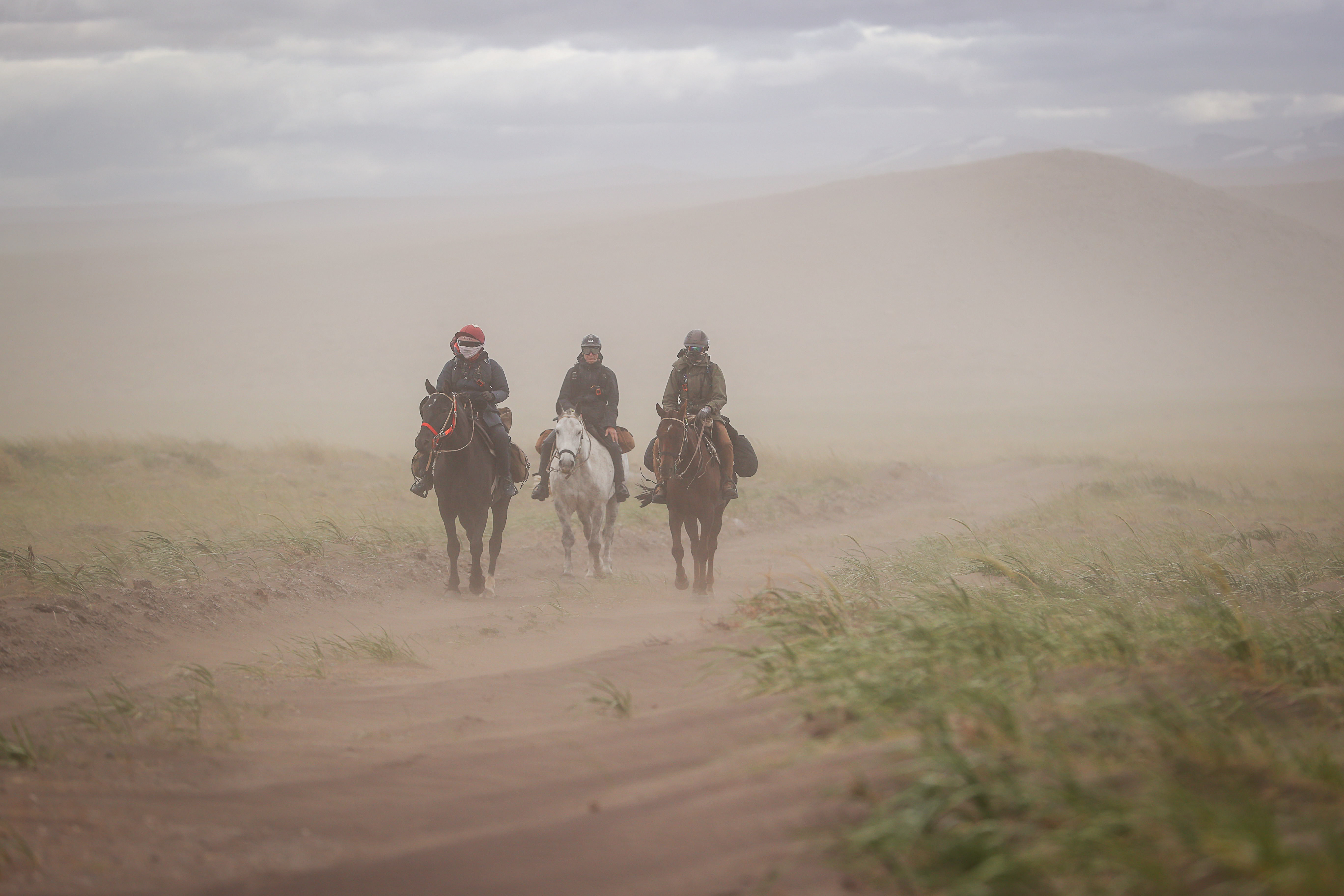
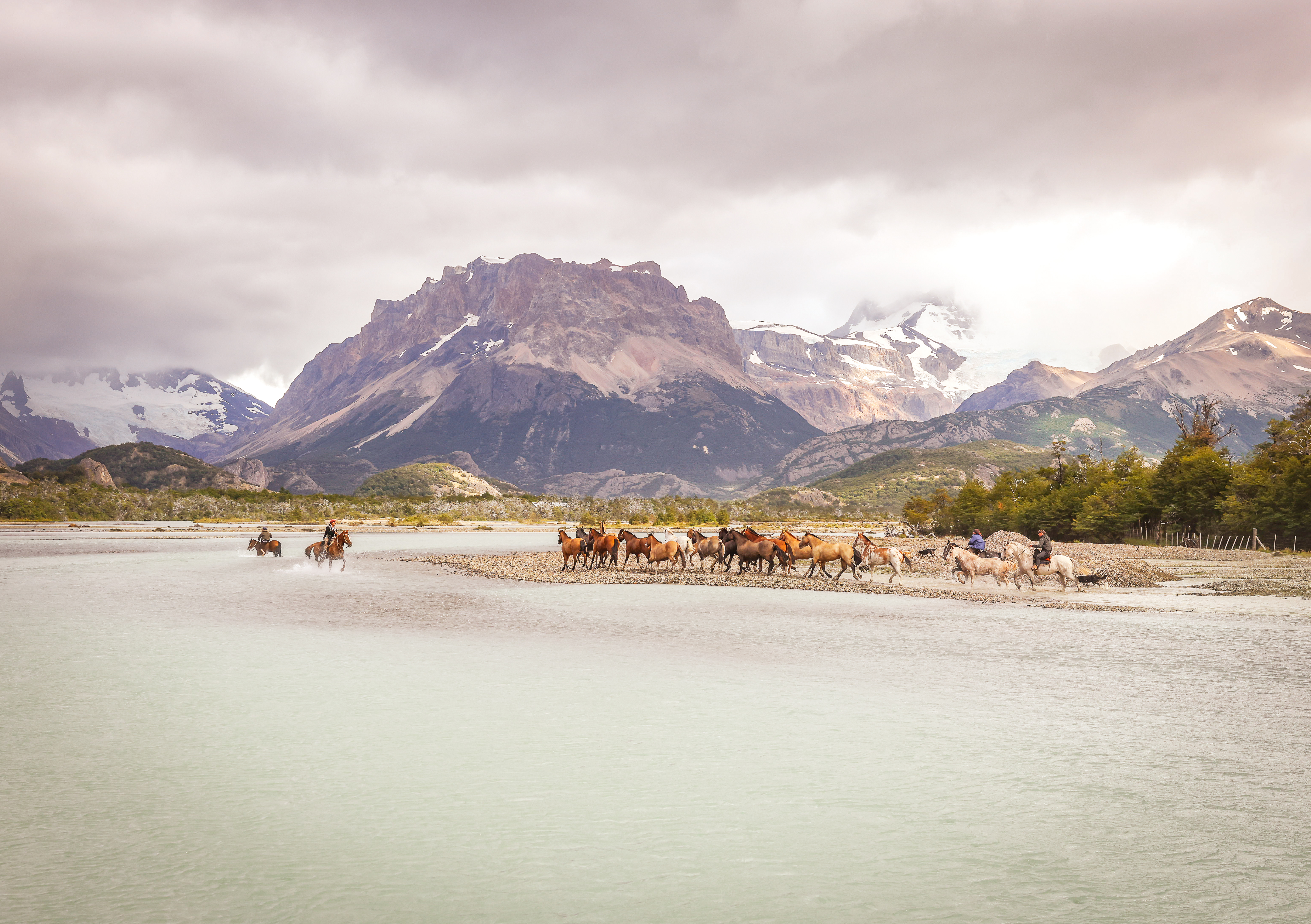

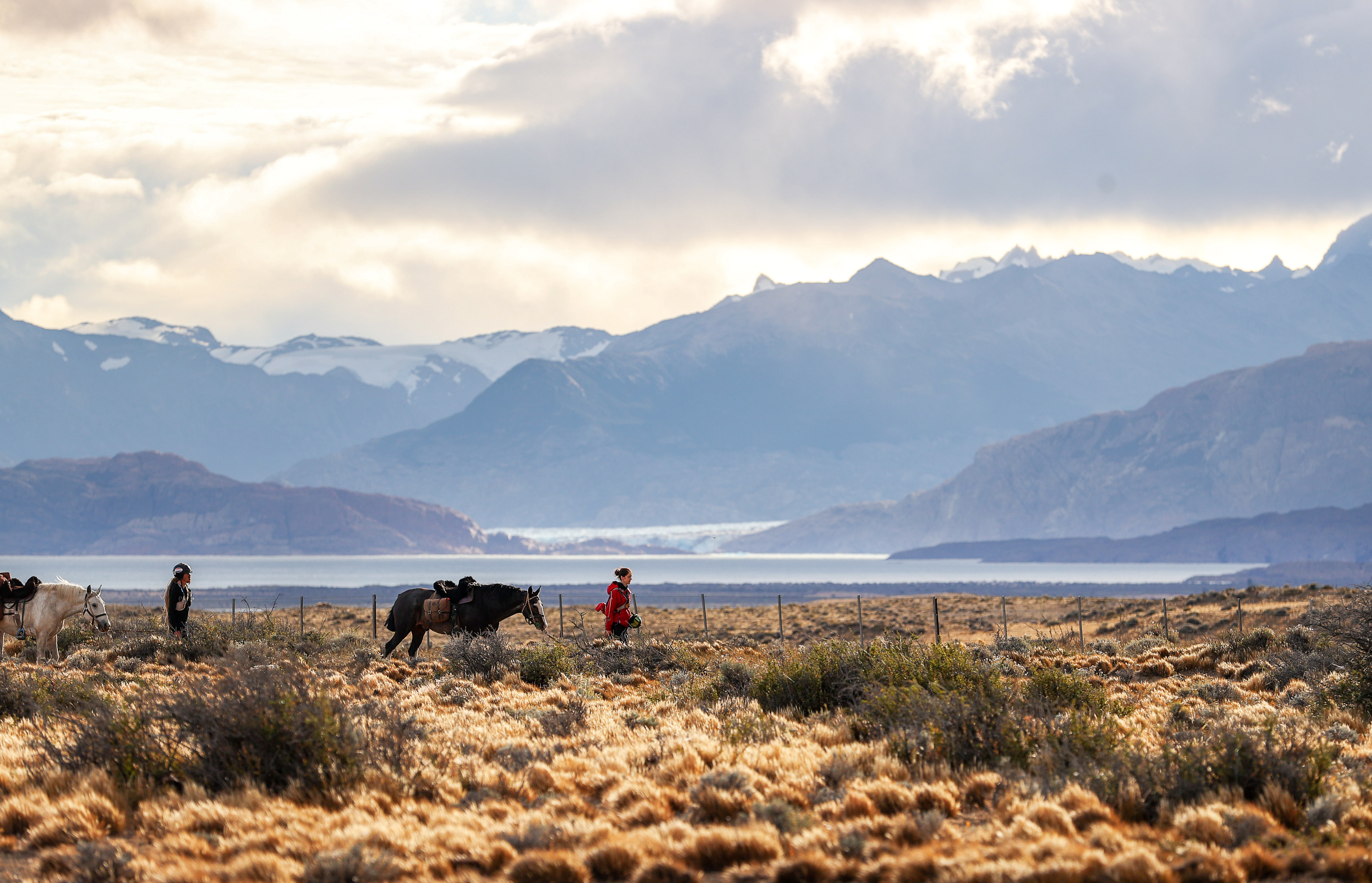
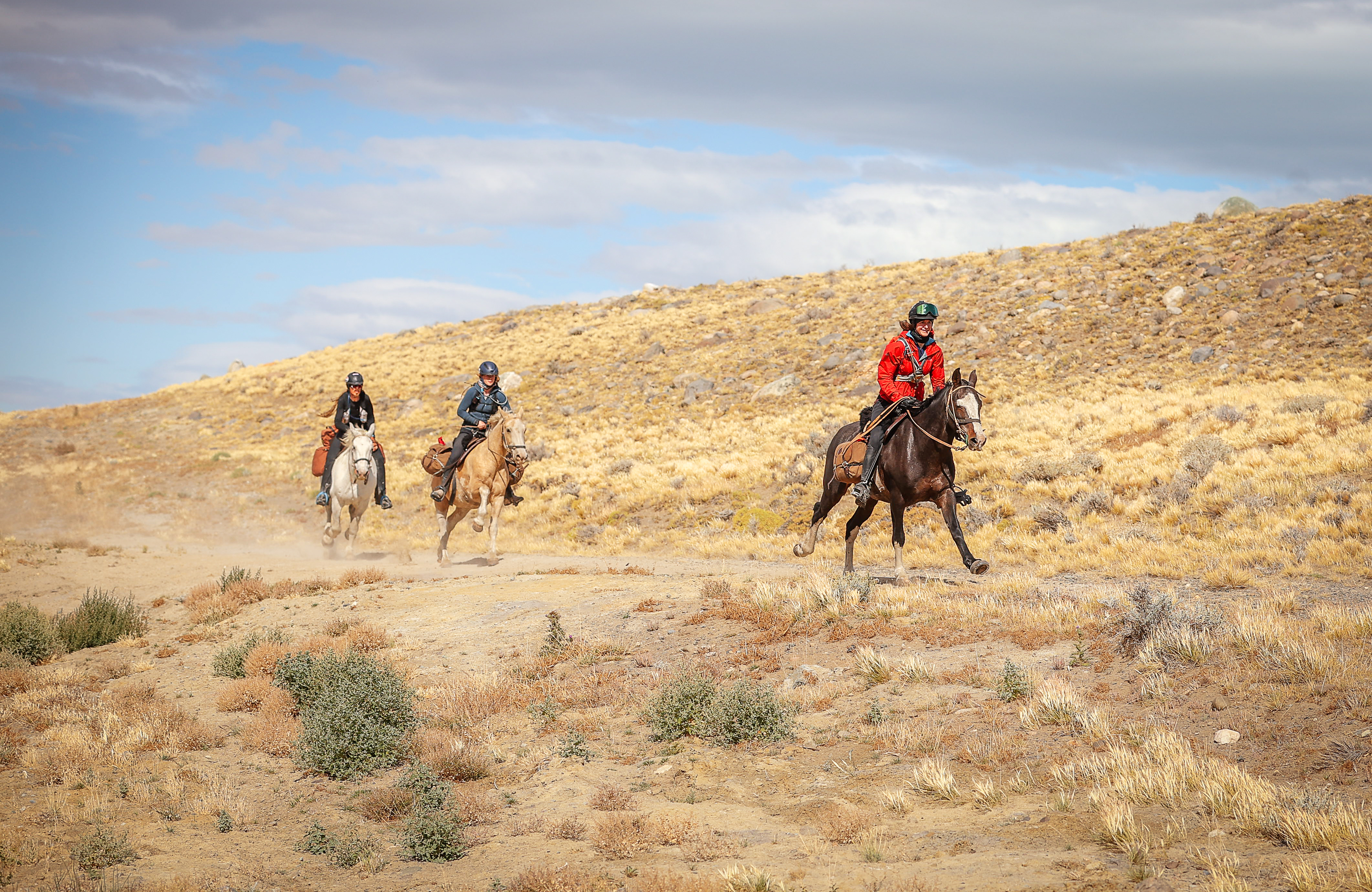
Top to bottom: winners at the finish line / a sandstorm
rolls in / gauchos at work / horse settled – now time to
set up camp - Josephine Jammaers from Belgium /
Rendel Rieckmann leading the way through some
tricky ground / the winners taking a chance to extend
their lead. CREDIT - Kathy Gabriel
Jessie Dowling to share her adventures in participating in the Mongol Derby
Race Update 6
Race Update 5
Race Update 4
Gaucho Derby Day 5: The Race Heats Up
Tom Morgan
12th February 2024
As the race enters Day 5, the competition at the front has heated up. Gaucho Derby veteran Daniel Van Eden, Endurance Athlete Holly Masson and Mongol Derby veteran Rendel Rieckmann have managed to secure the lead so far. Their excellent horsemanship, careful navigation and teamwork across the course has allowed them to pull in front. However, at day’s end Holly and Rendel were 30 minutes faster into the final horse station of the day, leaving Daniel to ride in solo after a long but successful slog over the meseta.
Just behind them, Gaucho Derby Academy alum Morgan Williams is literally hot on their heels, her quiet determination and tenacity for tackling this terrain making her a serious contender for the win. Overnighting at a scenic puesto just shy of the horse station, she will make her break for her next horse change first thing in the morning.
From high mountains to grassy valleys and expansive plateaus, the riders have navigated some of the most challenging terrain on the planet. Steep hillsides and muddy bogs pose formidable obstacles, with riders experiencing firsthand the unpredictability of Patagonia.
Rider Izzy Fitzalan Howard on the famous bogs and finding them first hand: “There I was, trying to find a way around the lake; it was all going very well until boom, in we went into a muddy bog! My horse was able to scramble to the other side, and we made it out just fine. These horses are seriously incredible!”...
Read the rest here:
https://equestrianists.com/updates/day-5-and-the-action-hots-up/
Race Update 3
Race Update 2
Race Update 1
Gaucho Derby: Days 1-3
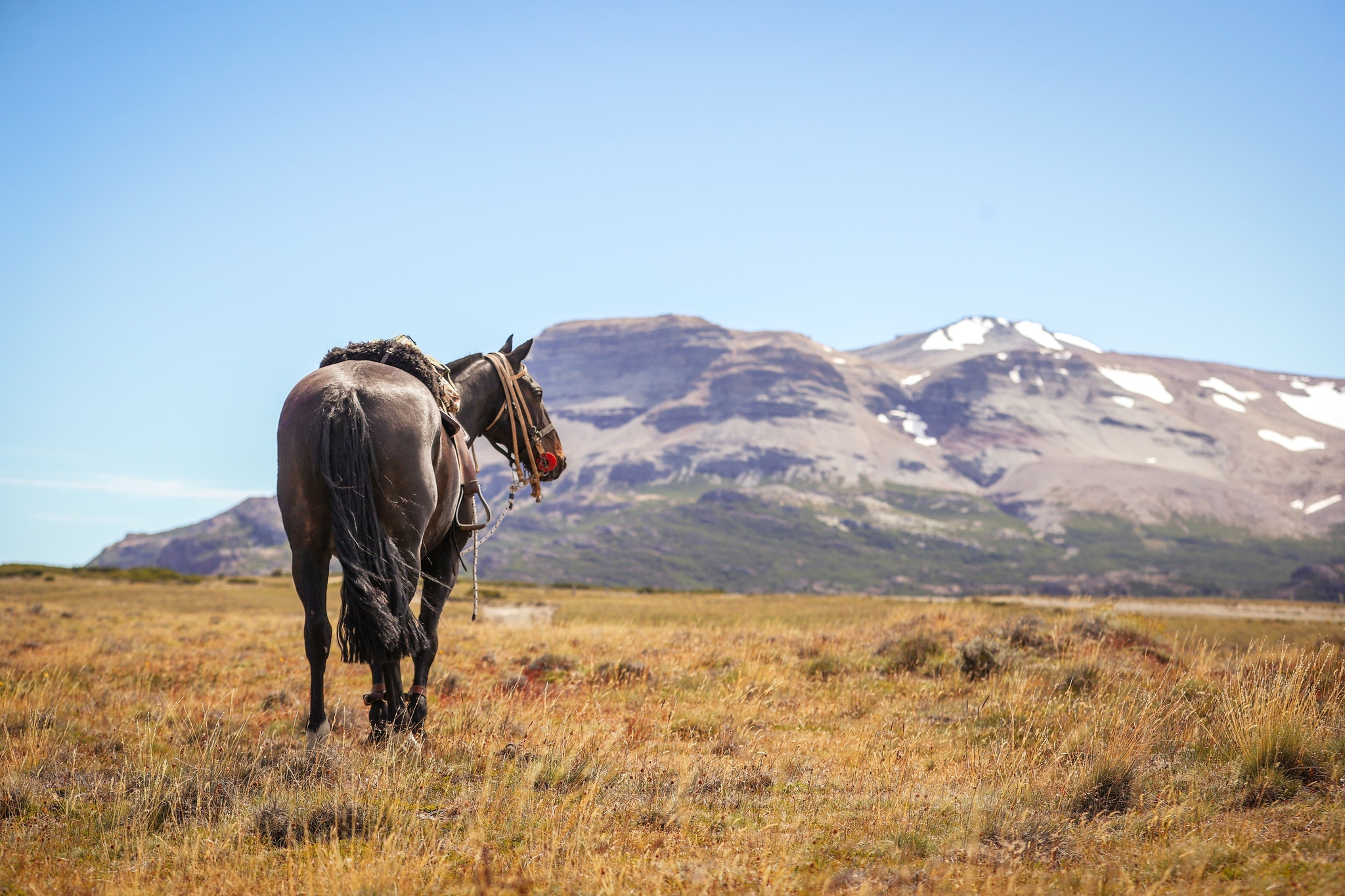 Photo by: @kathy_gabriel_
Photo by: @kathy_gabriel_
Wifi is limited in the wilds of Argentina, but here are updates from days 1 and 3 from the Gaucho Derby:
Day 1 Post
As the day winds down, riders take on the crucial responsibility of tending to their horses—ensuring they are well-fed, hydrated, and comfortably settled for the night. Only after attending to their equine companions do they set up camp and prepare a delightful dehydrated meal . This self-sufficiency is a hallmark of the journey, with riders managing their daily activities independently, without reliance on others or the support crew.
Day 3 Recap
It was a hot one in Patagonia, where scorching temperatures and a complete lack of wind added to the challenge, riders faced a day of slow progress amidst the challenging terrain of mountainous forests.
With unwavering determination, riders pushed toward HS2 (VC7), eagerly anticipating their first resupply. This crucial stop offered a much-needed boost with additional kits, including meals, snacks, and extra layers for the journey ahead.
Noteworthy discussions among riders centered on the intricacies of the gates, emphasizing the difficulty in navigating to the precise locations. Correctly hitting the gates became a crucial aspect, as any misstep could result in added time, necessitating re-navigation to reach the correct crossing point.
Looking ahead, the forecast promises a shift to chillier weather and a chance of rain. It remains to be seen whether the change in conditions will influence the pace of the pack, especially with the potential for rejuvenated energy from both the cooler temperatures and the introduction of fresh horses.
Warwick Schiller on the beast that is the Gaucho Derby
Australia's Warwick and Duncan saddle up for greatest test of horsemanship on Earth
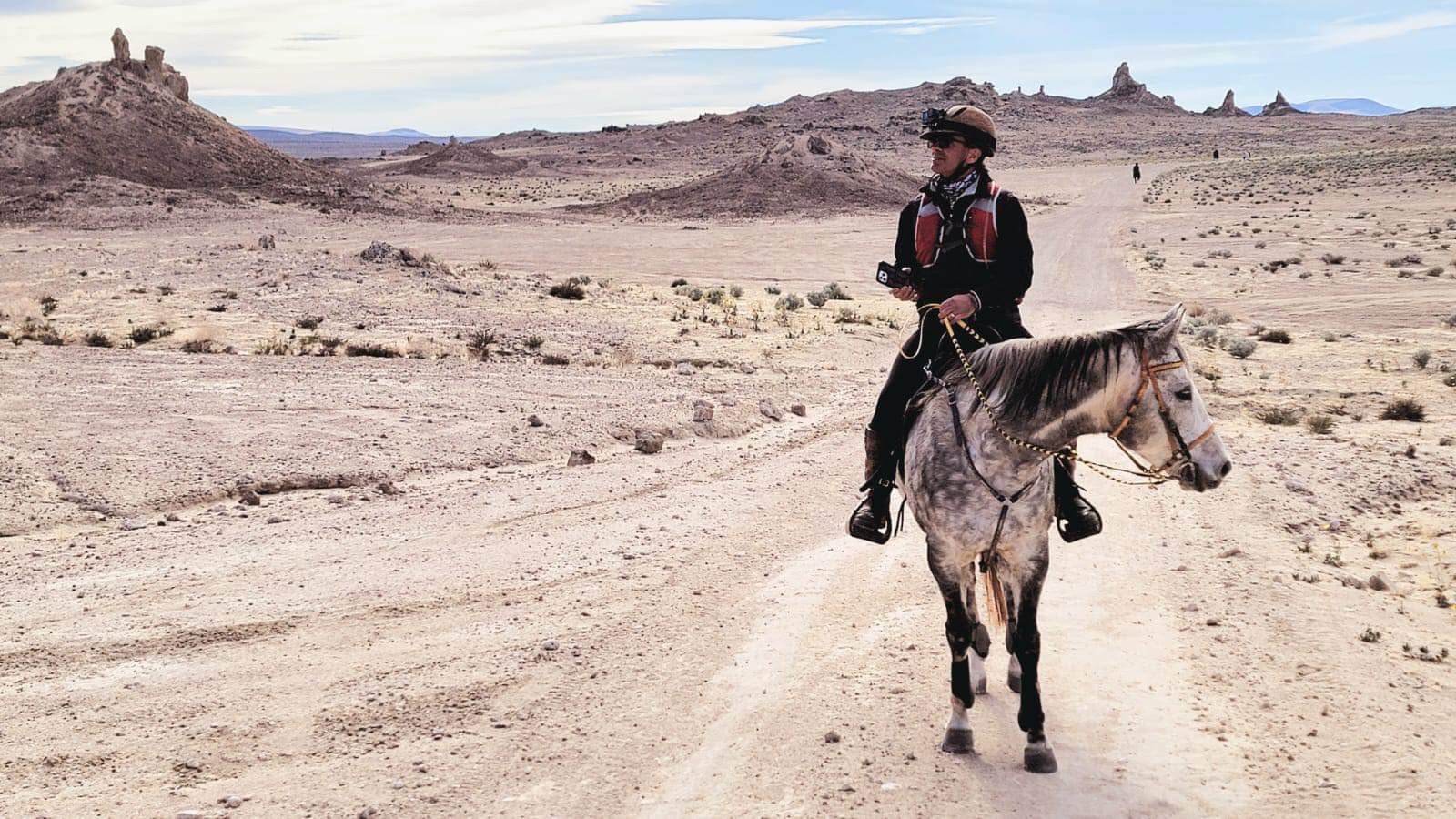 AboutRegional.com.au - Full Articoe
AboutRegional.com.au - Full Articoe
9 February 2024 | Edwina Mason
Eight Australian equestrians, two of them from the south of NSW, are stepping into the boots of the hardy, brave nomadic cowboys of Argentina as they embark on a gruelling 500-km endurance ride across the vast mountainous Patagonian region of Argentina.
Young’s world wandering Warwick Schiller joins Duncan McLaughlin of Bodalla, and 39 other international riders from Britain, the US, Germany, Switzerland, France, Canada, Chile and New Zealand on the 10-day Gaucho Derby, billed as the greatest test of horsemanship on Earth.
The derby is one in a world series of horseback endurance rides that don’t just test the mettle of the riders, who have notched up years in the saddle, but the loan horses on which they rely – ‘criollo’, all of them from the enormous – 100,000 acres large – Argentine ranches known as estancias, which cover vast swathes of Patagonia...
Read more here:
https://aboutregional.com.au/warwick-and-duncan-saddle-up-for-greatest-test-of-horsemanship-on-earth/444041/
'The gold is right there, keep going': Dunlap woman to compete in grueling endurance horseback race
'The gold is right there, keep going': Dunlap woman to compete in grueling endurance horseback race
 WCBU.org - Full Article
WCBU.org - Full Article
WCBU | By Collin Schopp
Published February 1, 2024
Laurie Kaplan started riding horses when she was 5. She told her mother she was interested and her mom got to work finding a barn in her hometown of East Lansing, Michigan.
Now, Laurie Kaplan lives outside Dunlap, Illinois and the barn is her own. Snow, slush and mud covers the ground at the Kaplan farm, home to chickens, cats, a large friendly dog, sheep and, of course, two horses.
“It’s the connection with the horse, they connect with us energetically,” said Kaplan about her passion for horseback riding. “When we show up in a bad mood, or a grumpy mood, if we don’t change that mood while we’re working with them, they may reflect back on us. They’re mirrors.”
Kaplan said she did a few competitive events in childhood, as well as teaching summer camps. Now, she’s about to take on the biggest challenge of her horseback riding career: the Gaucho Derby...
Read more here:
https://www.wcbu.org/local-news/2024-02-01/the-gold-is-right-there-keep-going-dunlap-woman-to-compete-in-grueling-endurance-horseback-race
Meet the riders for the 2024 Gaucho Derby
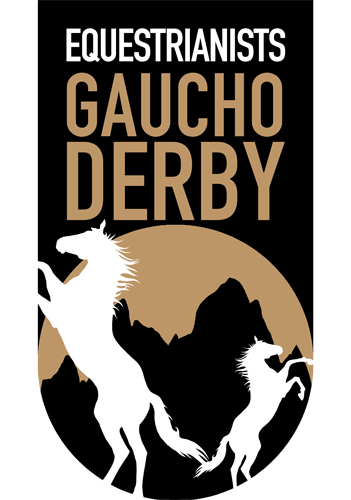 Equestrianists.com
Equestrianists.com
January 27 2024
Forty-one riders from New Zealand, USA, Netherlands, Switzerland, Great Britain, Chile, Belgium, Canada, France, and Germany will apply their horsemanship and navigation skills to negotiate "the greatest test of horsemanship and wilderness skills on earth" across Patagonia.
From February 4-18 they will ride locally owned Gaucho horses, most with Criollo blood, the native horse of the South American Pampas.
Riders are currently participating in the Gaucho Academy, where they brush up on their GPS and survival skills. As a finale, they will ride alongside the Gauchos and joining the team for a wild horse round up.
Stay tuned for more!
https://equestrianists.com/gaucho-derby/
2024 Gaucho Derby set for February 4-18
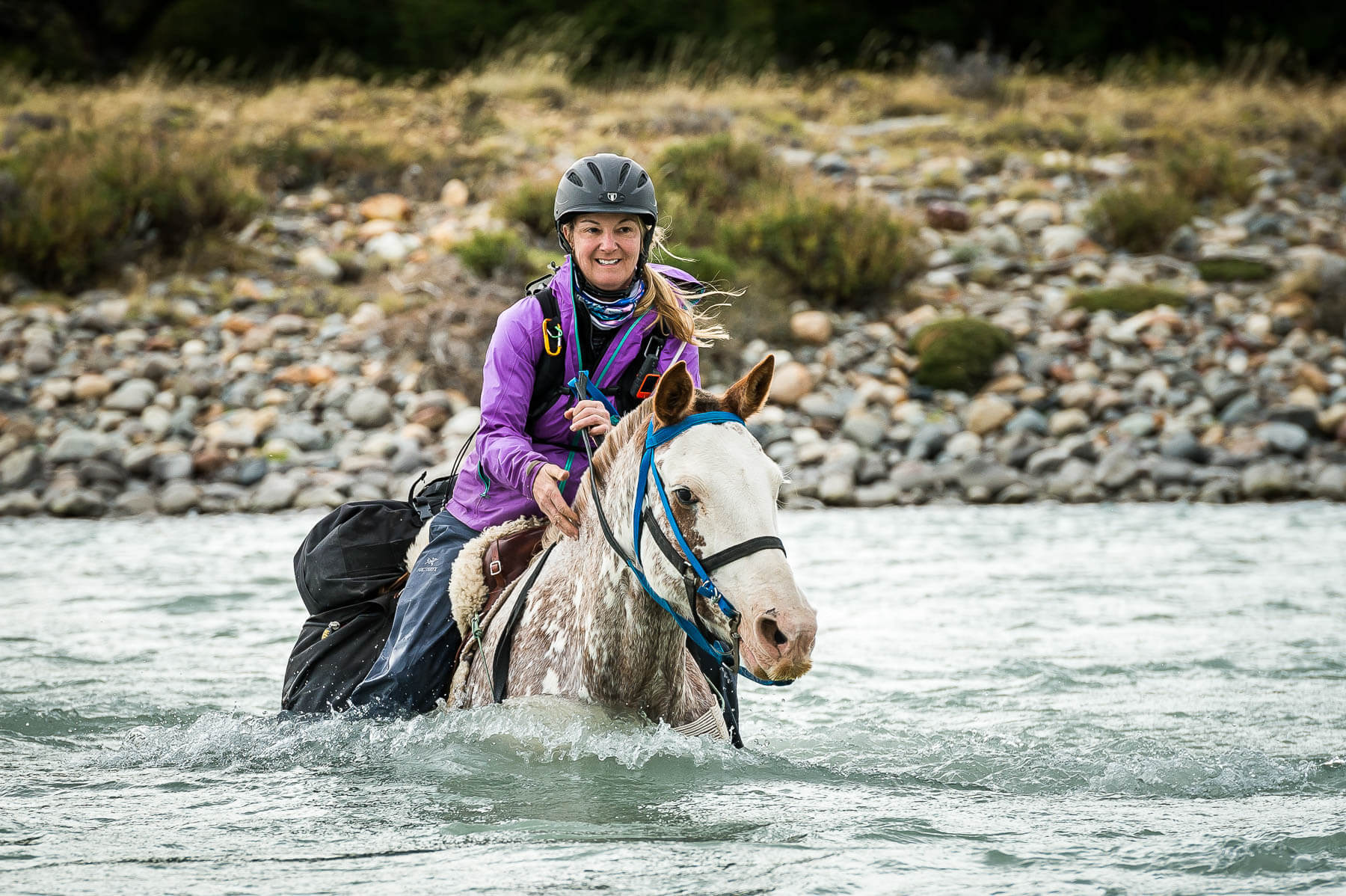 Equestrianists.com
Equestrianists.com
“This is the greatest test of horsemanship and wilderness skills on earth,” the Gaucho Derby, is set to take place February 4-18 in Patagonia.
Based on “the landscape, culture, history and horses of Patagonia and the Gaucho, 40 riders from the USA, New Zealand, Germany, Switzerland, France, Canada, Belgium, the Netherlands, and Great Britain, will navigate their way through the wild lands of Patagonia on horseback. They will ‘race’ between estancias and horse stations along the course; horses will be checked along the route and will have to pass vet checks to continue on and avoid penalties.
Stay tuned for more!
https://equestrianists.com/gaucho-derby/




